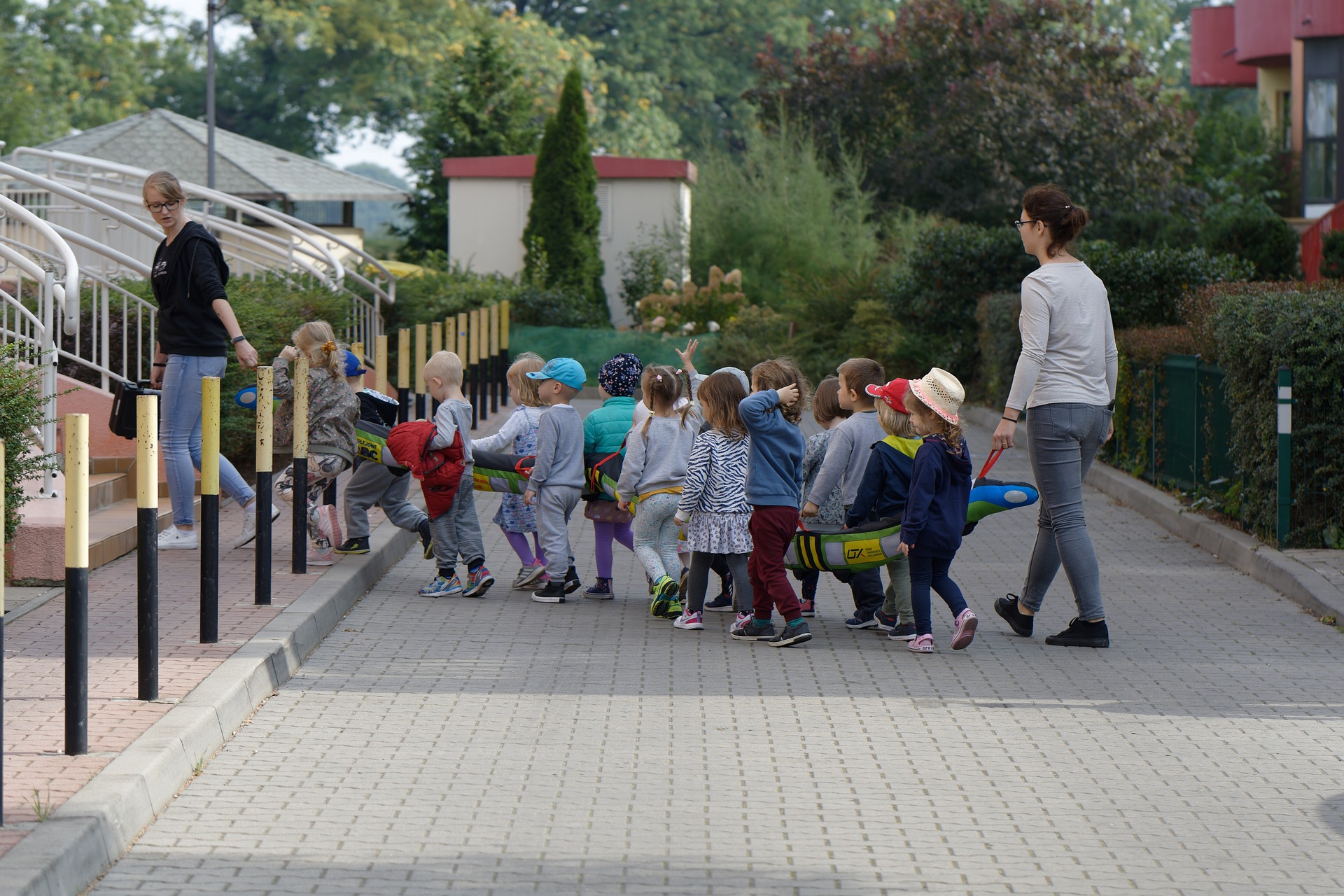Germany is currently grappling with a severe shortage of childcare professionals, which has reached critical levels in some regions. The latest estimates indicate that the country needs around 125,000 more skilled workers to fill vacancies in its daycare centers. With many parents relying on childcare services to balance work and family life, this shortfall is causing significant disruption, especially as demand for early childhood education continues to rise. To address this growing crisis, several German regions have increasingly turned to immigrant workers, particularly from countries such as Spain, Portugal, and the Philippines, to fill the gap.
The Childcare Staffing Crisis in Germany
The shortage of qualified childcare workers in Germany is driven by several key factors. Demographic shifts, such as a declining birth rate and an aging population, have reduced the number of local workers entering the profession, while the rising number of dual-income families has significantly increased the demand for childcare services. According to a 2024 report by Germany’s Federal Ministry for Family Affairs, 125,000 daycare worker positions are currently unfilled across the country. This shortage has placed a strain on existing daycare facilities, which are often forced to reduce operating hours or limit the number of children they can care for.
Furthermore, the profession itself has not been able to attract sufficient new talent due to relatively low wages and high job demands, including long hours, emotional strain, and underwhelming career advancement prospects. In fact, a 2023 survey by the German Trade Union Confederation (DGB) found that nearly half of all childcare workers reported feeling overworked, with some even leaving the profession for better-paid, less stressful positions.
Recruiting Immigrant Workers
In response to these challenges, several states in Germany have turned to immigration as a solution, hiring qualified childcare workers from abroad. One such example is a kindergarten in Cologne, which successfully hired several foreign-trained childcare professionals to help meet staffing needs. These workers, mostly from countries with strong early childhood education systems such as Spain and the Philippines, are filling a critical gap in the workforce.
The German government has developed programs aimed at facilitating the immigration of skilled workers, particularly in sectors facing shortages. One such initiative is the Skilled Workers Immigration Act (Fachkräfteeinwanderungsgesetz), which went into effect in March 2020. This law is designed to make it easier for skilled workers from outside the European Union to move to Germany, provided they have the relevant qualifications. A key component of the law is the Recognition Act (Anerkennungsgesetz), which streamlines the process for foreign professionals to have their credentials recognized by German authorities.
In the case of childcare workers, the process typically involves offering language courses, cultural integration programs, and assistance with the recognition of foreign qualifications. For instance, foreign workers who have received training in early childhood education are often required to complete a bridging program in Germany, which includes German language courses and an assessment of their professional qualifications before they can begin work.
Success Stories: Immigrants in the Childcare Workforce
A standout example of this approach’s success is the experience of a daycare facility in Cologne, which in 2023 hired several workers from the Philippines. These workers were able to quickly integrate into the workforce due to their extensive training in early childhood education, which is widely recognized in the Philippines. To assist with their transition, the daycare center provided language classes and orientation on local customs.
According to the director of the facility, the integration of foreign workers has had a positive impact not only on the children but also on the local community. Immigrant workers, particularly those from the Philippines, often bring strong familial values and a nurturing approach to their caregiving, which resonates with German parents who value the holistic care of young children.
In many cases, immigrant workers have proved to be an essential part of the workforce, allowing daycare centers to remain open and continue providing services to working families. However, despite these positive outcomes, experts have warned that immigration alone will not be enough to solve the staffing crisis in the long term.
Government Measures and Challenges
While immigrant workers have helped alleviate immediate staffing shortages, the underlying issues remain. In particular, Germany must tackle the low wages and poor working conditions that have led to a high turnover rate within the sector. According to the DGB, the average salary for childcare workers in Germany is still lower than in many other European countries, and wages have not kept up with the rising cost of living.
Moreover, while the German government has made significant strides in facilitating the recognition of foreign qualifications, language barriers remain a significant challenge. The ability to effectively communicate with children, parents, and colleagues is vital, especially in a diverse society like Germany. Language proficiency is not only a practical necessity but also a cultural one, as educators must understand and navigate local educational practices.
A recent report from the German Institute for Economic Research (DIW) in 2024 highlighted that while the Skilled Workers Immigration Act has made strides in attracting workers from abroad, the need for greater support systems for these workers—including job training, continued education, and social services—has become more pressing. The government has also introduced measures to streamline the process for foreign professionals to obtain permanent residency, which could help stabilize the workforce in the long run.
A Balanced Approach to Addressing the Crisis
Germany’s reliance on immigration to address its childcare staffing crisis underscores the growing importance of an integrated, international workforce. However, for this strategy to be sustainable, more comprehensive reforms are necessary, including improving working conditions for local workers, increasing wages, and providing more robust support systems for immigrants.
In addition to relying on foreign-trained workers, Germany will need to invest in attracting more locals into the childcare profession. This could include enhancing career prospects, offering more competitive salaries, and providing more training opportunities for young Germans who might be considering a career in early childhood education.
Conclusion
Germany’s ongoing childcare crisis highlights the challenges of balancing demand for social services with a shrinking domestic workforce. While immigrant workers have played a crucial role in alleviating staffing shortages, the government will need to implement long-term strategies to ensure that the country’s childcare system is sustainable. A multi-pronged approach that combines immigration, structural reforms, and investment in the local workforce will be key to solving this pressing issue.
References
- Federal Ministry for Family Affairs, Senior Citizens, Women and Youth (2024). Childcare Sector Faces Critical Staffing Shortage.
- German Trade Union Confederation (DGB, 2023). Survey on the Working Conditions in Childcare Centers.
- DW (2023). How Germany Is Recruiting Immigrants to Fill Daycare Jobs.
- German Institute for Economic Research (DIW, 2024). The Impact of Immigration Laws on Labor Shortages in the Care Sector.
- Tagesschau (2024). The Skilled Workers Immigration Act: A Game Changer for Germany’s Childcare Sector?
- The Local (2024). Immigrant Workers Help Fill Staffing Gaps in Germany’s Daycare Centers.



